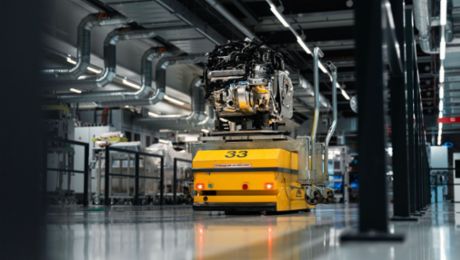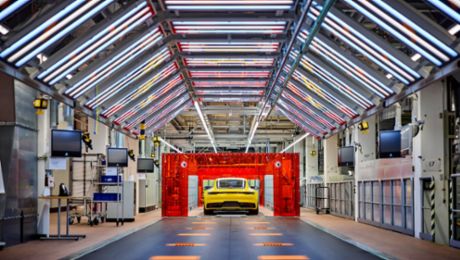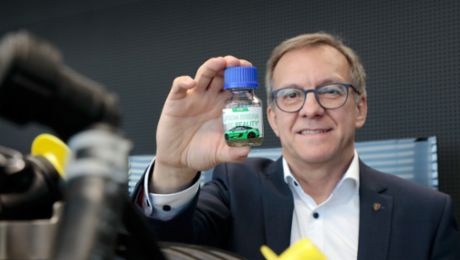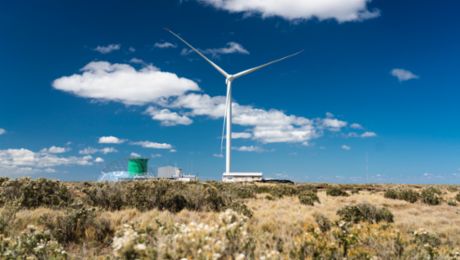These vehicles transport production materials around the plants, working alongside an existing fleet of 22 biogas-fuelled HGVs. Another electric HGV delivers new vehicles to Switzerland from the Zuffenhausen plant. In addition, the company is testing the use of synthetic fuels (HVO100) in a multi-year trial under the scientific supervision of the Karlsruhe Institute of Technology (KIT). For this purpose, twelve HGVs from the existing fleet will be used around the Zuffenhausen plant – but now they will be powered by re-fuels.
“Decarbonisation is an integral part of our sustainability strategy. The use of trucks with alternative drives and fuels is an important step toward achieving our ambitious goals. In doing so, we are consciously opting to use a mix of drive types that are appropriate to how the vehicles are deployed”, says Albrecht Reimold, Member of the Executive Board for Production and Logistics at Porsche AG.
In the course of the decarbonisation of the company’s HGV transport logistics, HGVs powered by biogas (CNG and LNG) have been used, among others, at Porsche for a long time. These will now be supplemented by the new electric HGVs in the standard processes. Logistics partners Keller Group, Müller – Die lila Logistik and Elflein have also committed to operating the electric HGVs using green electricity. This also applies to the new electric HGV used by the logistics company Galliker to deliver new vehicles to the Swiss market from the Porsche factory in Zuffenhausen.
Use of re-fuels with selected trucks in the existing HGV fleet
In addition to the expansion of the electric HGV fleet, Porsche has also been trialling the use of synthetic diesel fuels (HVO100) in its existing HGV fleet since 2020. The four-year pilot scheme is being conducted in cooperation with the Karlsruhe Institute of Technology (KIT) and Müller – Die lila Logistik. The logistics company is utilising twelve HGVs as part of the project. NESTE’s HVO100 fuel consists of residual and waste materials and meets the current requirements of the Renewable Energy Directive II (RED II).
In practical use, the fuel has so far proven to be very impressive. No disadvantages have been identified compared to conventional diesel fuel – neither in terms of fuel consumption nor regarding engine reliability. To date, more than one million kilometres have been driven as part of the project – according to certified measurements by KIT, this has saved more than 800 tons of CO2. The lorries operate a shuttle service in the greater Stuttgart area. To ensure that meaningful results could be drawn when comparing the data, the test trucks – which are series-production vehicles without any modifications – have been used in parallel with diesel-powered HGVs on identical routes.
By rail and road – Porsche transport logistics
Examples including the use of biogas and electric HGVs or the pilot scheme involving re-fuels demonstrate how Porsche is dedicatedly managing its transport logistics to achieve its set decarbonisation goals. This includes rail transport. This mode is used in particular for supplying parts and components to plants or for transporting new vehicles to the seaports, where the vehicles are then prepared for export to destinations outside Europe. Vehicle production itself also contributes to the decarbonisation objective: Since 2020, vehicle production at the Porsche sites in Zuffenhausen and Leipzig has had a CO2-neutral balance sheet across the entire value chain and uses electricity generated via regenerative energy sources.




